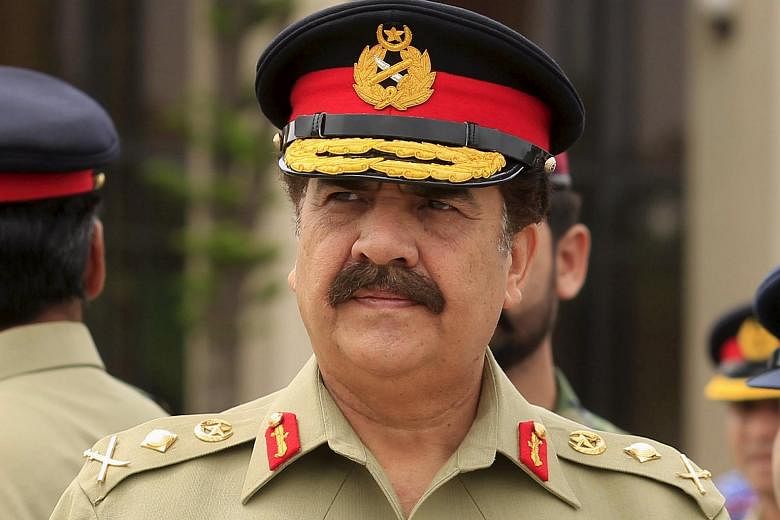ISLAMABAD (AFP) - Pakistan's hugely popular military chief General Raheel Sharif confirmed on Monday (Jan 25) he will retire at the end of his tenure this year, ending media speculation surrounding his role and opening up arguably the most powerful position in the country.
Sharif, widely credited with bringing a semblance of security back to the insurgency-plagued country, said in a meeting with his top officials Monday that he planned to seek no extension.
"Pakistan Army is a great institution," army spokesman Lieutenant General Asim Bajwa quoted Sharif as saying on Twitter. "I dont believe in extension and will retire on the due date."
"Efforts to (root) out terrorism will continue with full vigor and resolve. Pakistan's national interest is supreme and will be safe guarded at all costs."
Sharif was named army chief in 2013, when his predecessor General Ashfaq Kayani's term - which had been extended by three years - came to an end.
Sharif is due to step down this year.
Former military leaders Pervez Musharraf and Zia ul-Haq also extended their own rule during their time in power.
The announcement, which came less than a week after Taleban-linked militants killed 21 people in an attack on a university in the troubled northwest, was quickly praised on social media.
"Well-done Uncle Rahil Sharif, every #COAS should act like you, no greed but resolve to serve the nation," wrote Ab Rasheed Qureshi, using the acronym for his official title.
Under Sharif the Pakistani military launched an offensive in the tribal areas in June 2014, where militants had previously operated with impunity. The army claims to have killed thousands of insurgents and swept many others over the porous border into Afghanistan, contributing to a boost in security in 2015. However critics are concerned that rights are being rolled back in the name of defeating terror, citing the creation of military courts and the resumption of hangings after a six-year moratorium, among other moves.
Pakistan has been ruled by the military for more than half its 69-year history and the armed forces are widely seen as controlling defence and foreign policy. Whoever takes over Sharif's role will face an array of daunting challenges, including keeping homegrown militants in check, vexed relations with India and the role Pakistan wants to play in promoting peace in Afghanistan.

